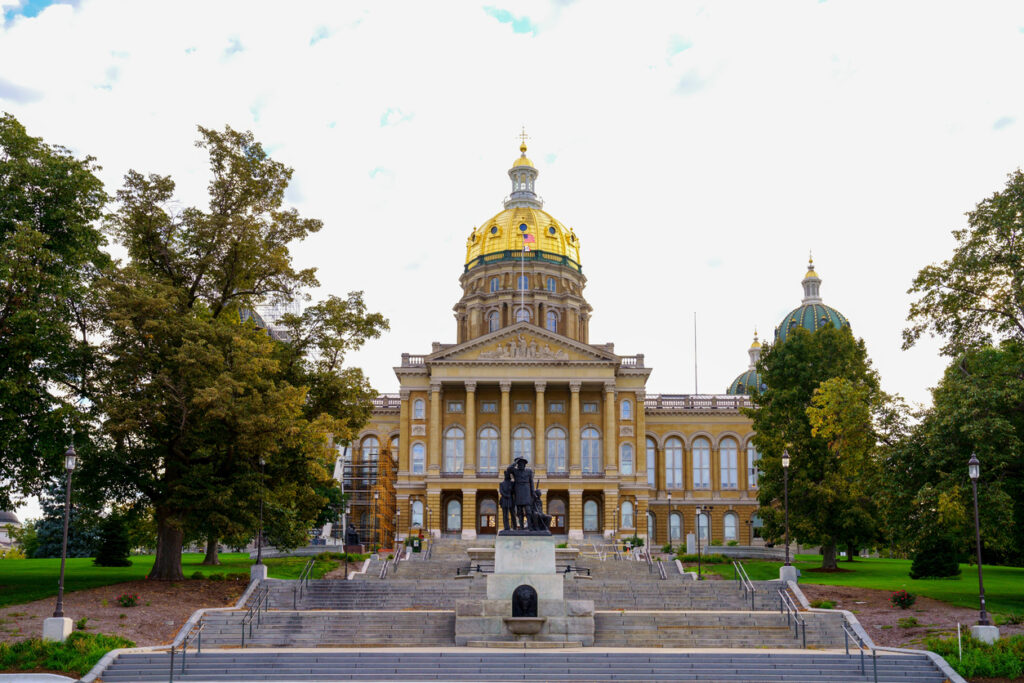
ATLANTA (BP) – Iowa and Utah are the latest states to pass legislation protecting religious freedom from governmental intrusion, with related legislation active in Georgia and four other states.
Iowa and Utah passed state versions of the federal Religious Freedom Restoration Act (RFRA) Feb. 29 and Feb. 22, respectively, according to the states’ legislative tracking sites, setting high legal scrutiny for any state or local governmental measure that restricts religious freedom, and giving alleged victims the right to sue.
Georgia’s Senate passed a similar bill Feb. 29, barely meeting the calendar deadline for the Senate to send legislation to the House. In Nebraska, the Freedom First Act introduced in 2023 was carried over to the 2024 session. Bills are active in Illinois, Missouri and Rhode Island to strengthen or amend RFRA laws already in place in those states, according to the legislative tracking site Bill Track 50.
Hannah Daniel, director of public policy for the Southern Baptist Ethics & Religious Liberty Commission (ERLC), applauded the legislation that mirrors the 1993 RFRA, which the U.S. Supreme Court ruled in 1997 only applies to federal legislation.
“At a time where many of our deepest held beliefs are viewed as intolerant or unpopular, these bills provide vital protections to people of faith living out those convictions in the public square,” Daniel told Baptist Press. “The ERLC highlighted several of these efforts in our first ever State Policy Agenda, and we encourage more states to follow this model.”
Iowa and Utah join 24 other states that have passed RFRA legislation since the 1997 High Court ruling.
The state laws, to varying degrees, prevent any laws that substantially burden an individual or group’s religious freedom, unless the laws meet the highest form of legal accountability. Generally, governments must show a compelling need for such laws and must use the least restrictive measures in fulfilling that need.
Utah included language in its measure to clarify that the bill does not overturn or jeopardize current measures protecting LGBTQ rights. Such rights include Utah’s 2023 bill enshrining into state law a ban on conversion therapy, and the 2015 “Utah Compromise,” which outlaws discrimination based on sexual orientation and gender identity while also protecting religious freedom, the Utah News Dispatch reported.
Opponents of RFRA legislation argue that it will be used to discriminate against the LGBTQ community and other minorities, but the Becket religious liberty law firm said those fears have not been realized.
“States like Connecticut and Illinois have had RFRAs on the books since the 1990s,” Becket argues on its website, “and LGBT advocates still hail them as some of the best states for LGBT individuals.”
Bills still in committees in Illinois and Missouri would amend current RFRA measures in those states and prohibit governments from ordering churches and other houses of worship from closing during health or safety emergencies. Similarly, a bill in committee in Rhode Island would amend the state’s RFRA law to “prohibit the elimination of any religious exemption to submit to mandatory health injections or inoculations.”
The issues received widespread attention during the 2020 COVID-19 pandemic, as many states ordered houses of worship to close to prevent the spread of the disease, and certain employers required such emergency workers as medical personnel to receive COVID-19 vaccines.
Congress passed the RFRA in 1993 during the Bill Clinton administration to protect religious minorities, Becket Law said, after Oregon denied unemployment benefits to Native American counselors fired for using peyote in religious ceremonies, Becket said.
The law originally applied to federal and state governments, but the Supreme Court ruled the application to states was federal overreach.
In addition to Iowa, Illinois, Missouri, Rhode Island and Utah, RFRA laws are active in Alabama, Arkansas, Connecticut, Florida, Idaho, Indiana, Kansas, Kentucky, Louisiana, Mississippi, Montana, New Mexico, North and South Dakota, Oklahoma, Pennsylvania, South Carolina, Tennessee, Texas, Virginia and West Virginia, according to various sources.
In Mississippi, a bill to repeal that state’s RFRA was referred to committee in January, Bill Track 50 reported.
















